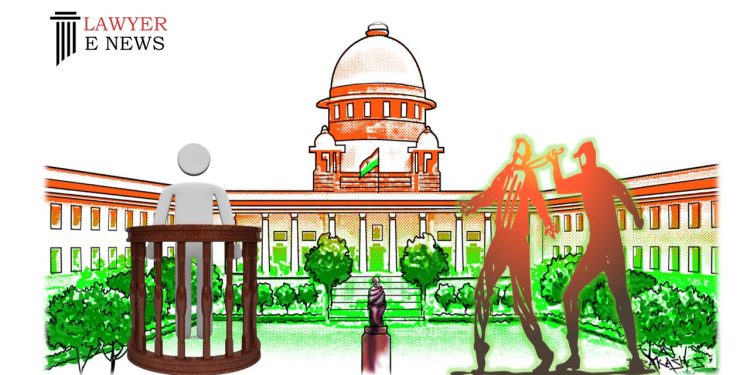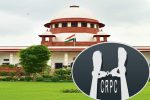Only Motive Established Not Sufficient For Conviction – SC

D.D:- JUNE 03, 2022.
Supreme Court observed (Mahendra & others Vs State D.D 03 June 2022) that it is a settled law that same treatment is required to be given to the defence witness(es) as is to be given to the prosecution witness.
As per prosecution At about 7.00 p.m., when Amol Singh and Akhe Singh reached village Ratanpur, he was walking ahead, followed by Akhe Singh (PW4), who in turn, was followed by Bhagat Singh, he heard the cries of his brother Bhagat Singh and when he turned, he saw The accused persons had assaulted Bhagat Singh on account of previous enmity. It is alleged that Amol Singh and Akhe Singh were walking ahead when they saw the assault. They ran for their lives and narrated the incident to villagers Budhor, Mokam Singh, Deewan Singh and others. All of them had come back to the spot of incident and found Bhagat Singh dead. They hired a tractor of Veer Singh and took the dead body to the Police Station. It is his case that the accused persons had assaulted the deceased on account of previous enmity. Charges were framed against all the 11 accused for offences punishable under Sections 148 and 302 read with Section 149 of the IPC. The case was committed to the learned Sessions Court.
The Trial Court acquitted Bharat Singh (A1), Vishwanath Singh(A2), Dashrath Singh(A5) and Padam Singh(A6). However, the Trial Court convicted Mahendra Singh(A3), Pritam Singh(A4), Santosh(A7) , Shambhu Singh(A9) and Lakhan Singh (A11) . They were sentenced to life imprisonment and a fine of Rs.5,000/each.
Aggrieved by Judgement A3 , A4 and A9 approached the High Court but conviction was upheld , hence the appeal to Apex court.
Appellants contended that entire conviction of the appellants is based on the sole testimony of Amol Singh (P.W.6) while D.W.3 and 4 reveal that Amol Singh (P.W.6) could not have witnessed the incident and he is the real brother of the deceased Bhagat Singh and therefore his testimony has to be scrutinized with greater care, caution and circumspection. And delayed FIR would create a doubt about the trustworthiness of the prosecution case.
Prosecution/Respondent/state opposed appeal on the ground that merely because a minor contradiction/ inconsistency cropped up in the evidence of the witness, it cannot be a ground to disbelieve the truthfulness of the testimony of such a witness. It is submitted that the maxim “falsus in uno falsus in omnibus” is not accepted in India.
Supreme Court observed that this Court has found that witnesses are of three types, viz., (a) wholly reliable; (b) wholly unreliable; and (c) neither wholly reliable nor wholly unreliable. When the witness is “wholly reliable”, the Court should not have any difficulty in as much as conviction or acquittal could be based on the testimony of such single witness. Equally, if the Court finds that the witness is “wholly unreliable”, there would be no difficulty in as much as neither conviction nor acquittal can be based on the testimony of such witness. It is only in the third category of witnesses that the Court has to be circumspect and has to look for corroboration in material particulars by reliable testimony, direct or circumstantial….. High Court has found the testimony of Amol Singh (P.W.6) to be in the third category and has upheld the conviction seeking corroboration from the Post-mortem Report.
Apex Court further observed that evidence of Amol Singh (P.W.6) would fall in the category of “wholly unreliable” witness. As such, no conviction could be based solely on his testimony. We find that the corroboration sought by the High Court from the medical evidence was not justified. The medical evidence could only establish that the death was homicidal. However, it could not have been used to corroborate the version of Amol Singh (P.W.6) that he has witnessed the incident.
And held that the prosecution has proved the motive is concerned, it is well settled that only because motive is established, the conviction cannot be sustained. Prosecution has failed to prove the case beyond reasonable doubt and as such, the accused are entitled to be given the benefit of doubt. Appeal Allowed. Conviction Set aside.
MAHENDRA SINGH AND ORS.
V/S
STATE OF M.P.





